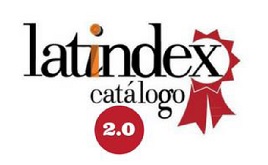Use of artificial intelligence in the financial reporting process
DOI:
https://doi.org/10.53641/9dey2375Keywords:
Artificial intelligence, financial ratios, accuracy, efficiency, GPT-4 chatbotAbstract
This research aims to investigate how artificial intelligence (AI) could contribute to the process of preparing financial reports for companies in Peru. To achieve this, an experimental case was designed involving the calculation of financial indicators in a reporting process using OpenAI’s GPT-4 chatbot. A basic protocol was employed, including chain-of-thought prompts that facilitate learning through instructions and contextual learning by the AI. The calculation of financial indicators was conducted for three different scenarios, varying the amount and quality of information shared with GPT-4. This research provides a detailed description of the instruction protocols formulated for each scenario, enabling future replication. The findings highlight the crucial role of accountants in ensuring the correct use of AI, the significance of an appropriate protocol to achieve accurate and efficient results, and the transformative role of basic protocols for the future of accounting. We view this study as a contribution to existing knowledge on AI applications in accounting, as well as providing evidence of its benefits in developing countries.
Downloads
References
Abu, Y., Sierra, L., & García, M. (2023). A bibliometric review of information technology, artificial intelligence, and blockchain auditing. Total Quality Management & Business Excellence, 35 (1–2), 91–113.
Calaça, O., Ramos, S., Carvalho, T., & Da Silva, A. (2022). Tax evasion identification using open data and artificial intelligence. Revista de Administração Pública, 56(3), 426-440.
Commerford, B., Sean, D., Joe, J., & Ulla, J. (2022). Man Versus Machine: Complex Estimates and Auditor Reliance on Artificial Intelligence. Journal of Accounting Research, 60 (1), 171-201.
Dambe, S., Gochhait, S., & Ray, S. (2023). The Role of Artificial Intelligence in Enhancing Cybersecurity and Internal Audit. 2023 3rd International Conference on Advancement in Electronics & Communication Engineering (AECE), Ghaziabad, India, 88-93.
De Kok, T. (2024). ChatGPT for Textual Analysis? How to use Generative LLMs in Accounting Research. Social Science Research Network, 1-62.
Fedyk, A., Hodson, J., Khimich, N., & Fedyk, T. (2022). Is artificial intelligence improving the audit process? Review of Accounting Studies, 27, 938–985.
Guajardo, G., y Andrade, N. (2008). Contabilidad financiera (5a ed.). McGraw-Hill.
Hanchi, G. (2023). Artificial Intelligence Co-Piloted Auditing. Journal of Emerging Technologies in Accounting, 20(1), 121-167.
Kapoor, M. (2020). Big4 invests in billions in tech, reshaping their identities. Bloomberg Tax News.
Masashi, G. (2023). Anticipatory innovation of professional services: The case of auditing and artificial intelligence. Research Policy, 52(8), 1-17.
Mehta, C.K., Kaushik, V., & Bhargav, S. (2021). A study of the impact of internal control measures on ease of use of forensic audit mediated by artificial intelligence techniques. 2021 Emerging Trends in Industry 4.0 (ETI 4.0), 1-5.
Ouyang, L., Wu, J., Jiang, X., Almeida, D., Wainwright, C., Mishkin, P., ... et al. (2022). Training language models to follow instructions with human feedback. Advances in Neural Information Processing Systems, 35, 27730–27744.
OpenAI. (2024). ChatGPT (agosto 2024). OpenAI.
Radford, A., Narasimhan, K., Salimans, T., & Sutskever, I. (2018). Improving language understanding by generative pre-training. OpenAI.
Real Academia Española. (2014). Diccionario de la lengua española (23ª ed.).
Seethamraju, R. & Hecimovic, A. (2023). Adoption of artificial intelligence in auditing: An exploratory study. Australian Journal of Management, 48(4), 780-800.
Superintendencia de Banca, Seguros y AFP (2015). Glosario de términos e indicadores financieros.
Wassie, F. & Lakatos, L. (2024). Artificial intelligence and the future of the internal audit function. Humanities and Social Sciences Communications, 11 (1), 386-399.
Xavier, C., Pires, R., Marques, C., & Soares, A. (2022). Tax evasion identification using open data and artificial intelligence. Revista Brasileira de Administração Pública, 56(3), 426–440.
Zhang, C., Cho, S., & Vasarhelyi, M. (2022). Explainable Artificial Intelligence (XAI) in auditing. International Journal of Accounting Information Systems, 46, 1-22.
Downloads
Published
Issue
Section
License
Copyright (c) 2025 Sadit Katerin Quispe Ttica

This work is licensed under a Creative Commons Attribution 4.0 International License.









